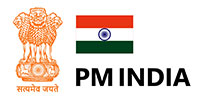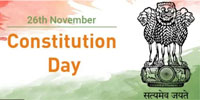ICAR-CIRCOT Organizes Online Lecture on Geographical Indicators with Special Reference to Tribal GIs under Jan Jatiya Gaurav Varsh Pakhwada
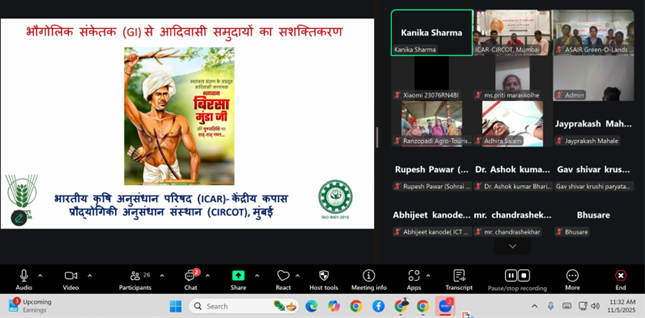
As part of the Jan Jatiya Gaurav Varsh Pakhwada celebrations commemorating the 150th Birth Anniversary of Bhagwan Birsa Munda, ICAR-CIRCOT, Mumbai organized an online session on “Geographical Indicators (GIs) with Special Reference to Tribal GIs” on 5th November 2025. Dr. Manoj Mahawar, Senior Scientist, hosted the program and extended a warm welcome to all participants. Dr. D. M. Kadam, Head, Engineering Technology Transfer Division (ETTD), addressed the online participants comprising tribal youth, women entrepreneurs, and innovators. He narrated the inspiring story of Bagwan Birsa Munda, highlighting his dedication and selfless service to society, and urged the young tribal participants to emulate his spirit of passion, leadership, and community service. He encouraged them to utilize local resources effectively through value addition and innovation to achieve self-reliance and socio-economic growth.
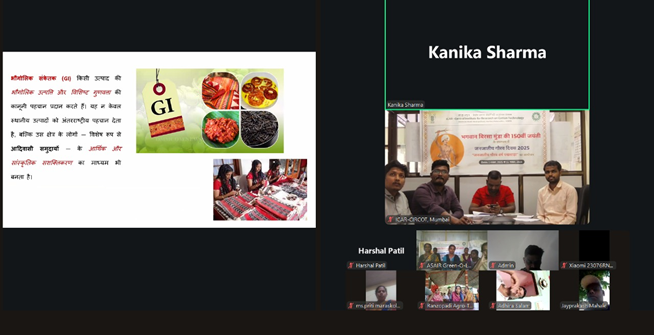
Dr. A. K. Bharimalla, Principal Scientist emphasized the rich cultural heritage and traditional wisdom of India’s tribal communities, stressing the importance of protecting tribal rights and intellectual property through Geographical Indicators.
Dr. Kanika Sharma, Scientist delivered a presentation on Geographical Indicators with special reference to those registered by tribal communities. She elaborated on the role of GIs in preserving unique traditions, cultural heritage, and indigenous art forms, and underscored their potential to uplift the socio-economic status of tribal artisans and farmers by providing national and international recognition. She also highlighted how GI registration safeguards tribal art, crafts, and traditional products from exploitation or imitation by international brands, ensuring that the authentic creators receive due credit and economic benefit. She encouraged participants to explore the registration of their unique products, crafts, recipes, or crops possessing regional and cultural significance under the GI framework.
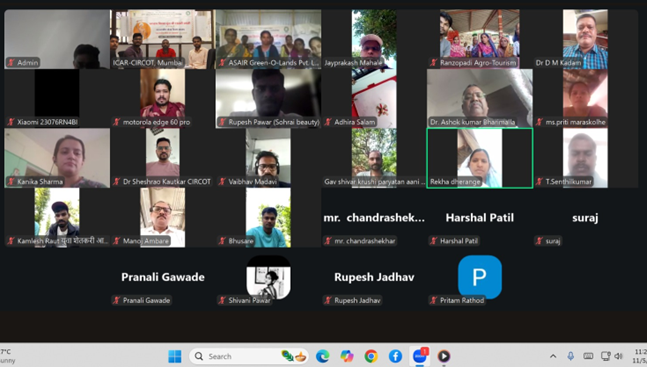
The session concluded with an interactive discussion, during which participants expressed their enthusiasm to learn more about GI registration and its role in empowering tribal communities through protection, innovation, and entrepreneurship
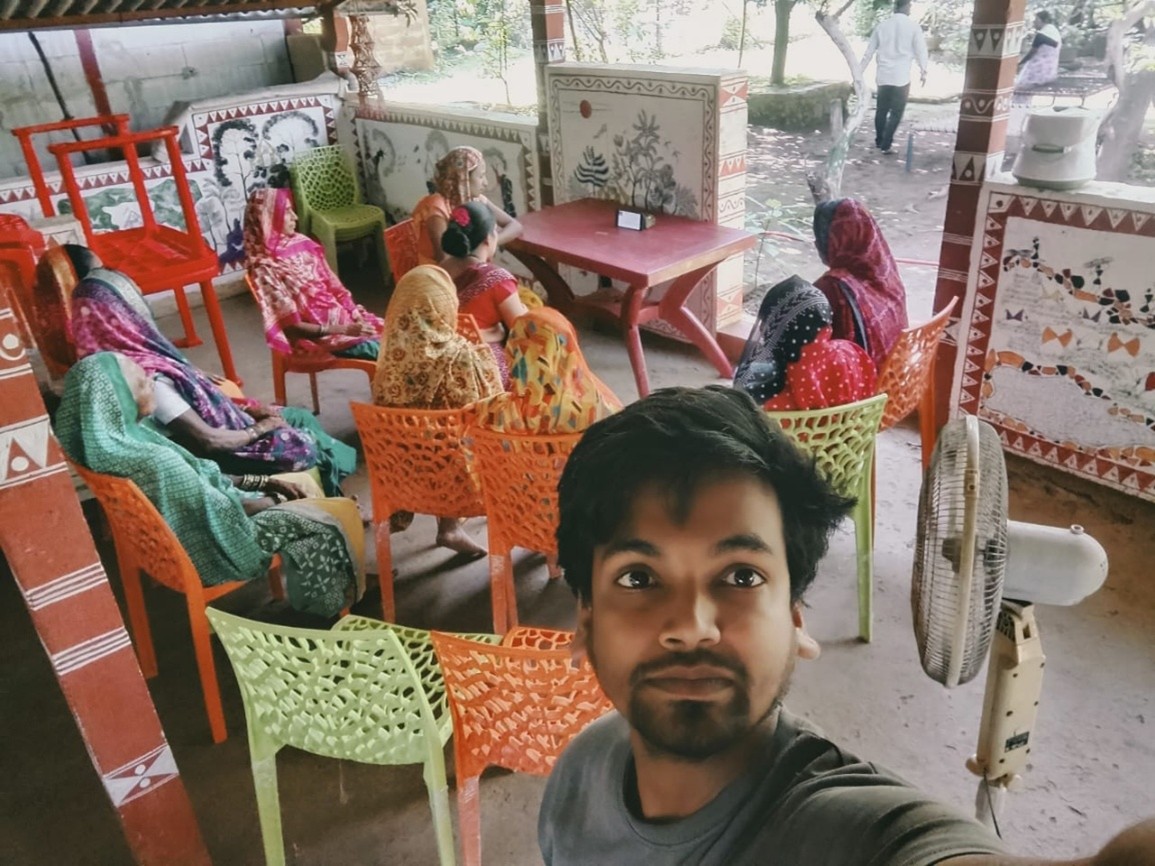
- Back to previous page
- |
-
Page last updated date:06-11-2025 10:22 AM




